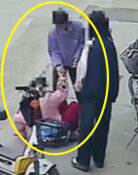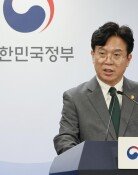[Diplomatic News] Moscows Koreans
[Diplomatic News] Moscows Koreans
Posted January. 13, 2006 05:19,
On the early morning of January 12 on Arbat Street in the center of Moscow, loud noises from machines and bright lights broke the silence in the northern country with long winter nights.
The commotion was at the construction site of Lotte Plaza, Russias largest construction investment project (worth $400 million).
Construction there continues 24 hours a day, even in the sub-zero cold. The plaza will be a bridgehead for Korean corporations to enter Russia, with the planned opening of a department store and business center with 21 floors on the ground and four floors underground late this year, and of a nine-story hotel in 2008.
Some 600 people are engaged in the construction. About 20 Korean staff from the headquarters of Lotte Engineering and Construction are leading the work. Other key workers are some 10 managing staff and engineers who are ethnic Koreans living in Russia. Approximately 30 construction workers are also ethnic Korean-Russians.
Kim Yong-deok, the executive of Lotte Engineering and Construction who is managing the construction site, says, While Russian engineers frequently leave a Korean companys project after failing to adapt to the culture of Korean corporations, Korean Russian engineers work in harmony with Koreans.
Inokenti Kim (55) and Fabel Kim (43) are seasoned workers who have worked for Korean construction companies in Russia, including Yuwon Construction and the construction sector of Samsung Corporation, for more than 10 years.
We were initially surprised at Korean companies work process, which were very quick, even to the extent of recklessness, they said. But we are so accustomed to it that we even find the slowness of Russian construction uncomfortable now.
Both of them were born in Uzbekistan in Central Asia. Koreans who were forced to move from the Far East to Central Asia in the 1930s have recently begun to flock to Russia, including Moscow.
Russian President Vladimir Putin signed into law a revision of Russias nationality law on January 5. The new law makes it easy for citizens of the former Soviet Union to acquire Russian nationality.
With its declining population creating labor shortages, the country intends to accept the immigration of former Soviet residents. Against this backdrop, ethnic Koreans in Central Asia are expected to move to Russia in increasingly great numbers.
More and more Koreans are going to Russia. There are only some 3,500 Koreans living in Moscow, but this figure is predicted to grow considerably over the next two to three years. Ethnic Koreans, who set foot on Eurasia about 70 years ago, and Koreans, who moved to Russia after the establishment of diplomatic relations between Korea and the Soviet Union in 1990, are living together in Russia.
A Kareisky town (Korea town) has already been established in Moscow. Around Hotel Orlonyok on Kosygin Street in southwestern Moscow, some 10 Korean restaurants, stores, hotels, videotape rental stores, real estate agencies, and beauty parlors are concentrated.
Moscows small Kareisky town was formed there because many Koreans are living southwest of the Moscow River where the hotel is located. The area naturally became a place where Korean Russians and Korean Chinese residing in Moscow gather. You can sometimes see North Koreans wearing the Kim Il Sung badge. The North Korean Embassy is located on Mosfilm Street nearby.
Most Korean restaurants in Moscow are run by Koreans. But those who help Korean cooks in the kitchen are Korean Chinese women and most of the waiters and waitresses are Korean Russians. Korean Chinese who understand Korean can assist Korean cooks who do not speak Russian well, and Korean Russians who speak Russian serve local customers. It is fair to say that there is division of labor among Korean people in Korean restaurants in Moscow.
There are even North Korean defectors who escaped from construction fields and logging fields in the Far East. Being chased by Russian and North Korean authorities, some of them work in construction sites of restaurants or office buildings in Moscow that Koreans build. Koreans with diverse life histories are living in the same community.
Byun Dae-ho, the consul general of the Korean embassy in Russia, said, We need to make an effort to understand and respect one another.
Ki-Hyun Kim kimkihy@donga.com







